Some of the world's leading publications on funding nature that educate and inspire us in what we do.
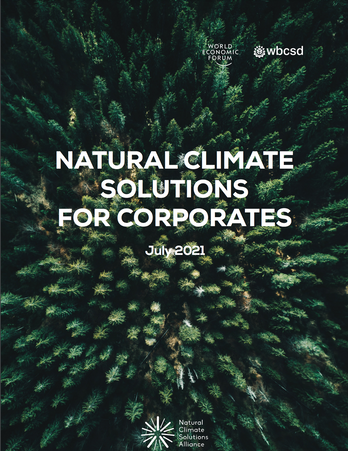
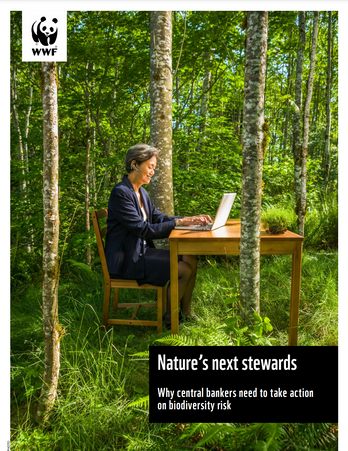
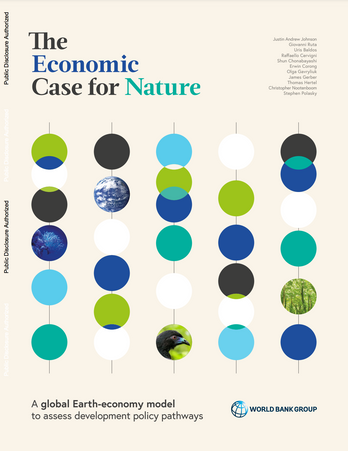
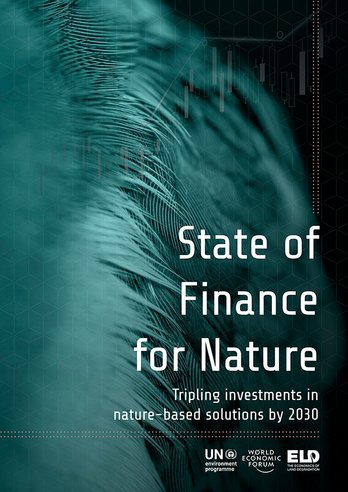
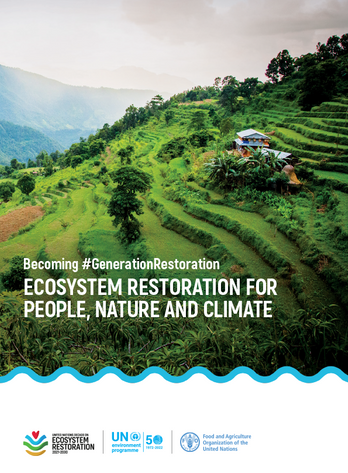
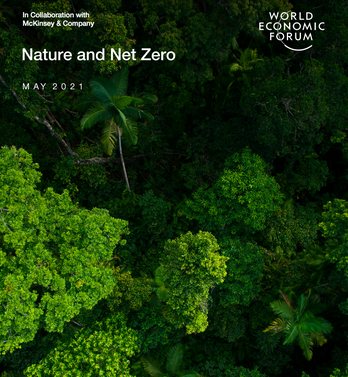
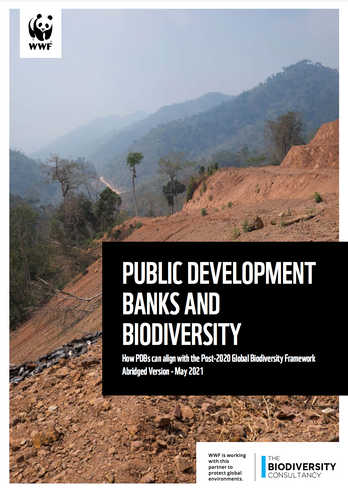
Reaching the goals of the Paris Agreement requires companies and governments alike to take immediate and decisive action to decarbonize – globally we must reduce or remove emissions equivalent to 50% of current levels by 2030 to be on course to reach net zero globally by 2050.1
To meet these targets, decarbonization needs to take place across the whole economy. Natural Climate Solutions (NCS) refer to actions that address GHG emissions, either by reducing them, e.g., through stopping degradation of natural carbon sinks (Reduced Emissions from Deforestation and Degradation (REDD)), or by sequestering carbon through the growth of carbon sinks (reforestation and ecosystem restoration).
WWF's new report highlights the urgency for central banks and financial supervisors to act on the risk of unprecedented nature loss.
With biodiversity loss not only compounding climate-related risks but a global crisis in its own right, the report warns that current practices of only integrating climate-related risks and impacts in existing mandates of central banks and financial supervisors, and not including risks from nature loss, fall short in ensuring a sustainable financial system.
The WWF report Nature’s next stewards: Why central bankers need to take action on biodiversity risk - with contributions from I4CE, F4B, ECOFACT, CEP and IUCN - is published today within the scope of WWF’s Greening Financial Regulation Initiative which supports central banks, financial regulators and supervisors in enhancing the financial sector’s stability and resilience to climate-related and broader environmental and social risks, while enabling the mobilisation of capital for the transition to a low-carbon, resilient and sustainable economy.
The global decline of biodiversity and ecosystem services is a development issue: Economies, particularly in low-income countries, cannot afford the risk of collapse in the services provided by nature. The analysis in this report, the first-ofits-kind, shows that by a conservative estimate a collapse in select services such as wild pollination, provision of food from marine fisheries and timber from native forests, could result in a significant decline in global GDP: $2.7 trillion in 2030. Relative impacts are most pronounced in low-income and lower-middle-income countries, where drops in 2030 GDP may be more than 10 percent.
The nature and climate change agendas are complementary and there are synergies to be exploited to foster green, resilient, and inclusive development. The benefits of nature-smart policy increase substantially when the carbon sequestration services of nature are factored in. This analysis highlights the economic and environmental benefits to be gained by aligning global, regional, and national policies that address biodiversity loss as well as climate change mitigation and adaptation and improve local livelihoods. Download Report>>
If the world is to meet the climate change, biodiversity, and land degradation targets, it needs to close a USD 4.1 trillion financing gap in nature by 2050. The current investments in Nature-based solutions amount to USD 133 billion – most of which comes from public sources.
The State of Finance of Nature tracks global trends in public and private investment in nature-based solutions, aiming to improve data quality and identify opportunities for governments, businesses and financiers. This year’s report calls for investments in nature-based solutions to triple by 2030 and to increase four-fold by 2050 from the current level. While an increase in public funding would help plug some of the gap, there needs to be a significant increase in private sector investment in Nature-based solutions. Download Report>>
If the world is to meet the climate change, biodiversity, and land degradation targets, it needs to close a USD 4.1 trillion financing gap in nature by 2050. The current investments in Nature-based solutions amount to USD 133 billion – most of which comes from public sources.
The State of Finance of Nature tracks global trends in public and private investment in nature-based solutions, aiming to improve data quality and identify opportunities for governments, businesses and financiers. This year’s report calls for investments in nature-based solutions to triple by 2030 and to increase four-fold by 2050 from the current level. While an increase in public funding would help plug some of the gap, there needs to be a significant increase in private sector investment in Nature-based solutions. Download Report>>
Becoming #GenerationRestoration: Ecosystem Restoration for People, Nature and Climate synthesizes evidence of the state of degradation of the world’s ecosystems and details the economic, environmental and social rewards that restoration can bring. The report shows that, far from being a ‘nice to have’, ecosystem restoration is needed on a large scale in order to achieve the sustainable development agenda. Over-exploitation of natural resources is embedded in economies and governance systems, and the resulting degradation is undermining hard-won development gains and threatening the well-being of future generations.
Countries need to deliver on their existing commitments to restore 1 billion hectares of degraded land and make similar commitments for marine and coastal areas. Ecosystem restoration is one of the most important ways of delivering nature-based solutions for food insecurity, climate change mitigation and adaptation, and biodiversity loss. It won’t be quick or easy, and it will take deep changes to everything from the way we measure economic progress to how we grow food and what we eat. But the beauty of ecosystem restoration is that it can happen at any scale – and everyone has a role to play. Download Report>>
Natural climate solutions (NCS) play a critical role in supporting the future of both climate and nature. Research conducted for this report confirms estimates that NCS can provide one-third (close to 7 Gt CO2) of the climate mitigation to reach a 1.5- or 2-degree pathway by 2030—and at a lower cost than other forms of carbon dioxide removal. Deployed in the right way, NCS can also produce high co-benefits that accrue to nature and to communities. Building off the recommendations from the Taskforce for Scaling Voluntary Carbon Markets, this report sets out five actions to accelerate the scale-up of high-quality NCS implementation and unlock markets through the combined efforts of business leaders, policymakers and civil society.
Science has never been clearer about the unprecedented extent and rate at which biodiversity is being lost1 , pushing vital ecosystems like oceans, forests, and rivers to dangerous tipping points. This erosion of global biodiversity is essentially caused by human activities. The erosion of biodiversity features high on the agenda of crucial international negotiations on climate, sustainable development, and biodiversity now scheduled for 2021, including on the Convention on Biological Diversity’s (CBD) post-2020 global biodiversity framework2. Preparatory documents and negotiations on the framework highlight that a coherent and concerted approach across the whole of society will be essential if we are to achieve global goals for nature.
More than half of the world’s total GDP is moderately or highly dependent on nature and its services3 . Yet in our globalized economy the impacts of damaging nature are not accounted for in the valuation of goods and services, or in the share prices of the companies that are responsible for that damage. Financial flows to conserve nature are hugely outbalanced by financing targeted to activities that are directly harmful to biodiversity. Download Report>>
FUND NATURE Copyright © All Rights Reserved 2021-2022
FUND NATURE is a brand and initiative of FUNDING NATURE LTD
Funding Nature Ltd is a private company registered in the UK No. 13526542. Registered address 20-22 Wenlock Road, London, England, N1 7GU